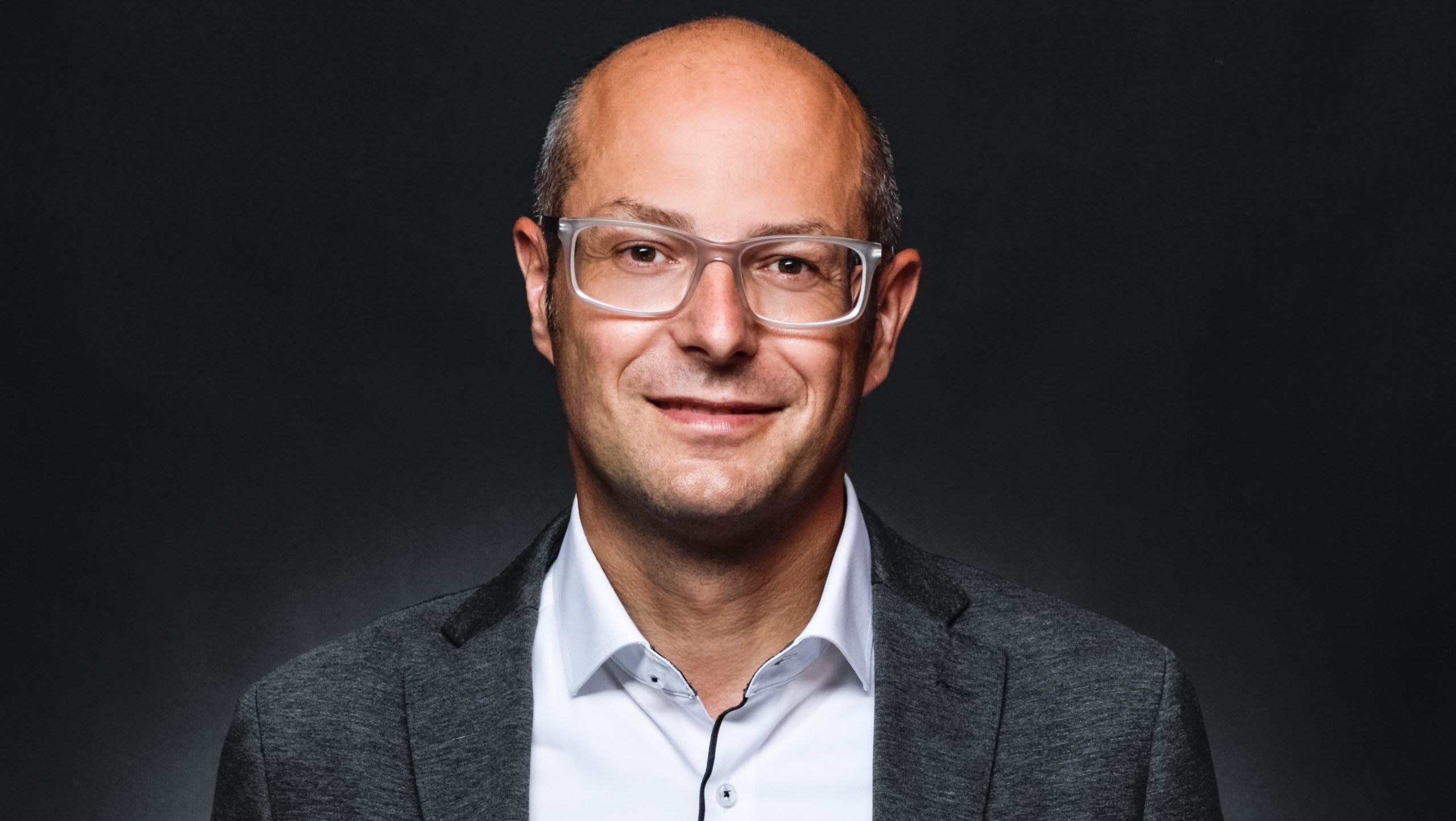Interview mit Michael Stock:
PowerPoint-Karaoke und Personalentwicklung im Metaverse
In a time when digital transformation and innovative learning methods are becoming increasingly important, the Metaverse offers exciting possibilities for training in human resource development. To understand how virtual realities can be effectively integrated into training, we conducted an interview with Michael Stock. As the CEO of Think.Start VR and developer of a TÜV-certified continuing education program for Metaverse trainers, he shares his experiences and provides insights about various application scenarios. Among other things, he explains how interactive formats such as PowerPoint karaoke can be implemented in the Metaverse. This conversation offers valuable perspectives for anyone interested in the future of learning and personnel development.
Hello Michael, thank you very much for taking the time for this interview!
My pleasure. I’m very happy to give interested people an insight into the diversity of this technology through this channel, and especially to show how much fun PowerPoint karaoke can be implemented there.
You are the CEO of #Think.Start VR and you have developed a TÜV-certified continuing education program for Metaverse trainers. Please give us an overview of your professional career and the motivation behind founding #Think.Start VR. What personally motivates you to work in the field of Metaverse training, and what vision are you pursuing with #Think.Start VR?
By now, I can look back on over 20 years of experience in personnel development, during which I have gone through many exciting stages. One of these stages led me to an intensive period where I traveled more than 60,000 km annually for sometimes very short meetings and unsustainable workshops. At some point, I started asking myself: How can we design training and learning processes differently, more effectively, more innovatively, and above all, implement them from anywhere?
This question accompanied me for a long time until I went on a hike in the Black Forest with my co-founder Sebastian. After this real time out, we came back with a clear vision: We wanted to bring training into the virtual world!
So we started with initial experiments and were immediately excited about the possibilities that Virtual Reality (VR) could offer us. But we quickly realized that many companies couldn’t do much with the technology yet – they first needed to be trained. And it was precisely at this point that the idea emerged to develop a training program that supports companies and individuals in integrating VR and the Metaverse into their learning and training processes.
Today, we are very successful with #Think.Start VR . Our continuing education offerings have meanwhile convinced numerous companies and individuals and have been honored with renowned awards such as the eLearning Award 2024 and the Education Award 2024. Being recognized as an Employer of the Future also motivates us to continue on our path.
Our vision at #Think.Start VR is clear: We want to make sustainable training and learning opportunities accessible from anywhere in the world. Our mission is to convince people of the potential of Virtual Reality and the Metaverse and to show them how these technologies can change the way we learn, train, and work together.
What is the Metaverse, and what potential do you see specifically in the area of personnel development and training?
There is a very detailed explanation for the Metaverse, but it is very technical, and I try to explain it using an image. The Metaverse can be well compared to a digital library where people from all over the world can meet simultaneously, and you have the feeling that you are together in one room. Everyone has access to this room, regardless of their physical location.
In the area of personnel development and training, I see enormous potential in the Metaverse, such as virtual presence and interactivity, simulated training environments, team and collaboration training, individual learning paths. Learning processes can thus be designed more flexibly, interactively, and accessibly, thereby offering new opportunities in continuing education. I confidently said “yes” and have been frequently recommended since then.

What advantages does Metaverse training offer compared to traditional training methods?
Training in virtual worlds offers different advantages. Besides a significant cost reduction and emission savings through fewer travel expenses, there is a clearly faster learning effect, a stronger focus, a higher emotional connection to the topic, and higher application confidence. Important to note, this also depends on the scenario. The medium is merely an extension of the methods toolkit, and there are also training sessions where it is not suitable.
PowerPoint karaoke and rhetoric games are effective methods to improve presentation skills. How can such interactive formats be implemented in a virtual environment like the Metaverse?
With a virtual environment, it becomes possible to create a lively and realistic experience. Thus, participants worldwide can appear on a virtual stage, present their slides, and have fun. They receive direct feedback from others or from an AI, all in real-time and without geographical limitations. The immersion (diving into the scenario) and interactivity of the virtual environment promote learning and make the exercises entertaining and practical for the participants.
What specific advantages does virtual reality offer for conducting rhetoric games compared to physical events?
From my perspective, there are several points that play a role here, because basically the brain does not distinguish between a real situation or a physical one. This means that the intensity of the experience in the virtual space is just as high as in the real world, which provides for effective learning and practice. The participants can thus experiment in a protected framework in a safe virtual environment, without the fears and nervousness that are often associated with real performances or glances from others. Especially for introverts, this is a valuable opportunity to develop without pressure.
Can you name an example where companies have successfully used the technology, especially in the area of communication and presentation skills?
Here I would like to mention two examples from our network partners. For instance, the rhetoric scores of employees at a pet supplies company were doubled with VREasyspeech, or the presentation skills of chemists at a chemical company became more confident with VReedback.

What feedback do you receive from participants who have taken part in such virtual training?
Many participants are surprised by the immersive experience. The virtual world is often perceived as amazingly real, which leads to a quick adaptation. What often comes up is how much fun the participants have during the training – and this while simultaneously learning and deepening new skills.
What challenges do you see (currently still) in implementing Metaverse training in companies, especially with regard to acceptance and technical equipment?
The main challenges often lie in overcoming skepticism regarding the new technology, the initial acceptance of employees, and the necessity of appropriate technical equipment, such as VR headsets and powerful systems. Often there is an attempt to immediately bring everything into the virtual world, whereas small steps are the right way.
How do you see the future of the Metaverse in the area of personnel development and training? Are there trends or developments that you find particularly exciting?
I see the future of technology in the area of personnel development and training as promising, as more and more companies will recognize the potential. I find the integration of AI particularly exciting, whether in designing virtual worlds or in interaction within increasingly realistic scenarios.
Do you have tips for trainers and companies considering integrating Metaverse training into their personnel development?
Definitely be curious and get started. They should gain as much experience as possible and of course complete a qualified continuing education that not only explains the possible applications but also shows how other people can be guided.

Is there anyone in the world you would like to have lunch with, and if so, why?
There is no one in particular. I enjoy spending time with positively thinking people and exchanging ideas, also gladly over lunch.
What are your three favorite books?
- Heinz Erhardt “Noch’n Gedicht” for amusement
- Paulo Coelho “The Alchemist” for reflection
- Jaques Mayol “Homo Delphinus” for relaxation
You are also present on social media? How and where can one follow you online?
I can best be reached via LinkedIn and also share most of my experiences and information here. I look forward to every contact and exchange.
Dear Michael, thank you very much for the informative and valuable insights into the world of the Metaverse and VR technology! We wish you continued success!

